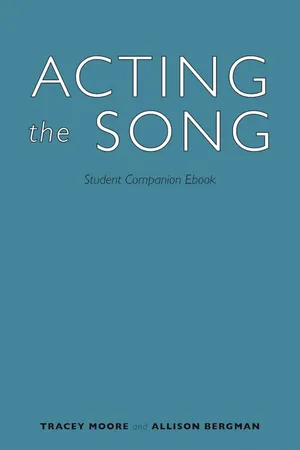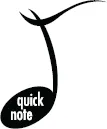![]()
AUDITION
Musical Comedy Debut: Tulsa Little Theatre
Age: 12
Show: George M!
Role: Boy #2 (a very pivotal role)
Audition song: “Call Me Irresponsible” (Had no idea what the song meant but it sounded really good in my voice.)
Got my BFA in musical theatre at CCM. It was the late 1800s and it was one of only about four schools that had a musical theatre program. I loved the competitive environment and the other Broadway-obsessed students and the brilliant professors there. They basically stripped me of all my tricks and bad habits and got me to simplify everything I did. Then I went to NYC and added all my old tricks back. But they were often grounded in some sort of truth. OFTEN! I played mostly older roles in my college shows and I have to say that when I moved to NYC, my biggest challenge was “Acting my age.” Now that I’m in my fifties I feel like I’m finally back to those college parts and it’s nicely familiar territory. Except now I don’t have to wear age makeup.
—JASON GRAAE
jasongraae.com
WHAT TO EXPECT
You’ll still use the techniques of Workshops One, Two, and Three to prepare your songs, but now you will adjust for the audition room. This section contains some checklists and do-and-don’t lists. We will talk a little about follow-up, too.
(If you are a high school student reading this book, you may be getting ready to audition for college theatre programs. We recommend you read this whole Audition section, but you can also jump to the next chapter, Auditioning for College, if that’s what you’re preparing for.)
Learning to Audition
Auditions haven’t changed much over time. Yes, there’s the video submission now, that’s new, but what you do in the video is pretty much what actors have always done.
The best way to learn to audition is by auditioning as much as you can. But here’s some advice we’ve gathered from the many audition books out there.
• If you are nervous, remember that the people behind the table want you to be good. Casting a show is like problem-solving: Who can fill this part? Can this person tap well enough? Will this person be believable as the love interest of this other person? When you enter the room, the casting people are hoping that you are the answer to their casting “problem.” If you are the answer, then their job is done!
• If you dislike the feeling of powerlessness that can come with auditions, remember that your audition is like a two-minute show over which you have total control. You get to choose what to sing, what to wear, how to move, what to say. You are, in effect, the producer, director, and star of the show. You have lots of control over the audition (you just don’t have any control over the results).
• If you dislike auditioning, remember that this is an opportunity to do what you love: To sing and act and dance, or to embody a character. If you can live in the moment of loving what you do, perhaps you can reframe the experience as a reminder of why you are pursuing this career.
• If you walk out of auditions frustrated because you don’t do your best work in that environment (if only they could see you in performance or in the practice room!), remember that auditioning is a muscle that must be worked. If you only audition once a month, your muscles will be weak. You can work your muscles in class, too: Audition classes are a great place to try out new material or clothes or personas/attitudes and get feedback.
• Prepare, prepare, prepare. Nervousness is always a factor in auditions and lyrics are the first thing to go. Create the circumstances so that you can relax in the audition room: Rehearse your audition song like you are getting ready for the opening night of a show. You wouldn’t show up on opening night and just wing it, would you? Don’t audition that way either.
All of these things are true. The casting people do want you to be their solution; the audition is your show; you do need to practice, and this is an opportunity to do what you love and be your best self.
But knowing all that won’t help if you are trying too hard to be what “they” want you to be, or if you’re worried about what “they” will think about your work. What if the most important thing was what you thought about your work?
When you care about doing a good job on your monologue or song, when you are artistically satisfied, you will walk out of the room with a whole different attitude. When you decide to make auditions about doing the kind of work that you want to do, it is a very powerful feeling.
Now, let’s be clear: There is a fine line between being satisfied and being a jerk. Don’t make this ugly, like, “I don’t care what you think, you suck, I hate you, I’m ignoring you, I’m gonna do my thing over here and look down with disgust on your whole project.” That’s not it.
It’s more like, “I can’t wait to do something wonderful for you. I love it, I love what I do, I do it well, and I can’t wait to share it with you.” Then, if your work isn’t what they are looking for, it’s cool, because you’ve kept your integrity as an artist, and if you’ve done great work, you have earned respect—from them, yes, but self-respect, too. And good work always gets remembered.
It may not happen every time. Sometimes you get caught up in judging yourself and worrying about what they think. As the song in A Chorus Line goes, you’re all, “God, I hope I get it!” But the more you practice making auditions about doing good work that satisfies you, the easier it gets. Actor Bryan Cranston talks about having had a similar breakthrough here.
Try to watch auditions whenever you can. One reason audition classes are good: You get to see what other people are doing. But if you can be a reader, an assistant director, or choreographer, or even just go online and watch other people’s audition reels on their websites: do it. You will learn so much by watching.
| Want to be a pro? Make sure you use the right words. You’ve been cast. Not “casted.” I was cast, he was cast, yesterday the show was cast, tomorrow they are putting up the cast list, I’m in the cast. No one in show biz is ever “casted.” |
The Accompanist
Unless you are auditioning with taped accompaniment, which is rare, you will have a partner in your audition: the pianist. The accompanist is there to help you, so do everything in your power to make it easy for them to help. Make sure your music is in good shape and in the right key. Don’t get in the accompanist’s space—don’t crowd them, or touch them, or cough on them. If you get a nervous stomach before auditions, have a mint or gum beforehand so your breath will be pleasant.
Go into auditions assuming that the accompanist is going to be great. Sometimes there’s a rough measure or two at the beginning but it will sort itself out. Sing faster or slower if you want tempo changes, and send “style cues” to get the pianist to rock out more or follow you more. Sometimes, you and the accompanist can really make music together and it’s awesome.
Every once in a while, it doesn’t work. Sometimes, a pianist isn’t a good sightreader, or they are so busy playing they miss your subtle cues. Before you get mad at them, consider: Can you sit down and play music you’ve never seen before, perfectly, the first time? Yes, we’re talking about the whole “people who live in glass houses” thing. Even if you are an amazing pianist yourself, consider: What good will it do to get mad? Will that help you sing better? Will it make you look like someone who’s fun to work with?
Chances are, if the pianist is having trouble, the people behind the table already know it. Your song is likely not the first one to go wrong. Rolling your eyes won’t help. Your only job in this situation is to make a split-second decision: To restart or not to restart?
We only recommend a restart if there is a total and complete, horrifying, train wreck. If you can make it through the song and come out okay, then you should. If the pianist is playing the song in 4/4 and it’s supposed to be a waltz, and it’s measure ten and the pianist shows no signs of catching on … you need to stop and fix that. But we have observed many times where singers expect perfection at the first measure and if things go wrong, they freak out and restart. Is this the message you want to send to the director beh...


